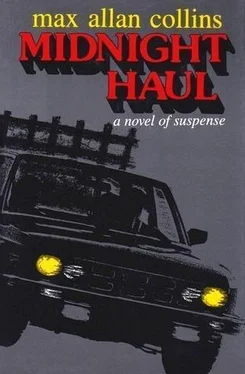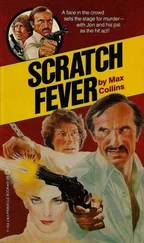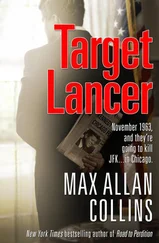He didn’t think so. It was early yet. Like Crane, the truckers wouldn’t have started out till about midnight, and, unless they were going to add to the thirty or so thousand barrels piled in Chemical Disposal’s yard, would have to dump their cargo elsewhere. Pennsylvania, maybe. But eventually, he hoped, that truck and the truckers would come home. Home to this graveyard of chemical waste.
He climbed up on the wall of barrels that ended where the side of the building, and the loading-dock area, started. He sat on a barrel with the gun in his hand, resting in his lap, and waited. It was cold, and the hospital hand-me-down jacket, loose fitting as it was, did little to keep the cold out; but Crane didn’t mind. He liked it.
He counted stars: there weren’t many to count. A piece of the moon floated half-heartedly in a sky streaked by smoke from nearby industrial chimneys. He could smell more of the river, tonight, than during his daytime visit; but the sickly perfume laced with rubber was still thick. Boone had explained to him that this was an odor characteristic of dump sites.
He thought about her. He thought about her as long as he could do it without seeing her in a coma; when that image came into his mind, he forced it out.
He counted barrels.
He’d been sitting there perhaps an hour when headlights stretched down the cinder drive, a truck rumbling after.
It was the same flatbed truck, its sides built up, its tarp flapping, that he and Boone had seen at Kemco that time. Even from here he could see two men in the cab.
He hopped off the barrels, landed hard, and caught himself with the hand that didn’t have the gun in it.
Then he walked out in the path of the truck, stopped in front of it, and it stopped, too, abruptly, brakes squealing, a good two car lengths between them, but he could see their faces behind the windshield, clearly. They were faces he’d never seen close-up before, not without ski masks in the way, but that the driver was the tall skinny man and the rider the stocky one was apparent. So was the look of fear on their faces, as he pointed the gun at them.
The stocky one looked a bit like his friend Roger, which threw him a little, and the skinny one had a long, roughly handsome face and dark curly hair and was young, about Crane’s age, and that threw him, too: he was so used to a faceless enemy, it shocked him to be confronted by two people, that it should all boil down to two young men as scared at this moment as he was.
Because his finger was squeezing the trigger, but he couldn’t make it squeeze hard enough — in his mind, he could hear their cries of pain and surprise, but he couldn’t seem to make his finger turn those mental images and sounds into reality.
Something cold crawled into his stomach; something colder crawled into his mind: he couldn’t kill these people. He’d forced this confrontation and he didn’t know what to do with it.
“Get out!” he yelled. “Get out of that goddamn truck!”
The doors on either side swung open, but neither man hopped out.
Crane heard a door open behind him, at his left, and he turned halfway and saw the man in the quilted jacket with the bushy black streaks for eyebrows who had given him that beating not so long ago. The man did not seem to be armed, though he probably wished he was. He was standing frozen in the doorway by the loading dock, looking at the gun, which Crane was now pointing his way.
“Take it easy, kid,” the man was saying.
Whether or not he recognized Crane, Crane couldn’t tell; he did recognize the gun, however, and kept on saying “Take it easy, take it the fuck easy, okay?” like a litany.
Crane heard the truck’s doors slam shut. The distraction had been just enough to give the truckers what they saw as an opportunity: the vehicle was moving, the driver aimed its prow right at Crane, the vehicle shifting noisily as it bore down on him.
There was just enough space between them and Crane for the truck to work some speed up, and it was just confined enough an area for Crane to wonder where the hell to go; the walls of barrels were everywhere, except in the loading dock, which was just another wall to get rammed against, and the cinder drive, where the truck was.
He didn’t shoot at them. He was too busy running, and then there was nowhere to go and his back was to the wall of barrels and they were coming right at him, and he dove and rolled, rolled out of the way, and the truck smashed into the wall of barrels and the explosion was immediate.
A bright orange fist of fire shot into the sky, and hung there, and shook as if in anger. Crane was blown by the force of it against the far wall of barrels, away from the flames. Behind him, the screams of the truckers were cut short with the second spasm of fire and smoke.
Crane was up and running, gun still in hand, the heat and flames to his back, but he could hear the sound of it, like heavy artillery shells going off, and when he did look back, there were barrels hurtling themselves into the air, hundreds of feet, some tumbling end over end, trailing smoke and fire, others bursting like bombs in a fireworks display of horrifying proportions.
The shape of the truck, at the base of the burning wall of barrels, was only barely discernible, the warehouse a black silhouette with windows of red-orange, its roof on fire; where the guy with the black streak eyebrows had gone, Crane didn’t know — if he ducked back inside when the truck went after Crane, he was gone, period. Flames had spread to the pick-up and were on their way past the loading dock to the adjacent wall of barrels, and Crane ran, barrels dropping behind him like bodies out of high windows; he could hear them, thudding to the ground, when the sound of barrels exploding wasn’t obscuring all else.
The Buick was up ahead, and he wondered if he could make it; if the fire spread to those silver, hovering gas tanks, so very close to the blaze, there could be a firestorm, and a city — a real one, not populated by waste drums — might die.
Then something behind him exploded loudly and the blast drove him face down, onto the cinders, scraping his face, and he suddenly realized his jacket was on fire, and he got out of it somehow, ran out of it, and it fell to the ground behind him, waving its fiery arms. He stood there looking up into a sky full of fire, from which barrels fell as if dropped from a plane, and his legs went out from under him, and darkness came.
The first major snowstorm of the winter had been just three days ago, but the roads were clear and so was the afternoon. Even with his tinted glasses, the sun reflecting off the pavement bothered his eyes. But otherwise Hart felt pretty good. Today was kind of special: he’d had some good news for a change.
He was stretching a point, driving down here on company time. The Greenwood situation was out of his hands, now, which was fine with him. He’d gotten some glory out of it, which is to say some nice press notices, and now Greenwood was the combined headache of the state of New Jersey and the U.S. Government, specifically the NJ Health Department and the EPA.
Of course, that crazy kid Crane had been wrong about a lot of things. There was no Kemco conspiracy as such, no cover-up in which employees who “knew too much” were murdered as phonied-up suicides. Like he’d told the kid, that was absurd.
But Crane had been dead right about those landfills. Hart had been haunted by the hysterical kid’s ranting about those damn things, and, even though it wasn’t really his bailiwick, he’d gone ahead and had the soil samples taken and chemical tests made. He’d expected the findings to be routine. They weren’t.
Читать дальше












